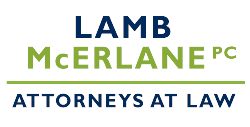Collaborative Practice Between Pharmacists and Physicians

Collaborative practice between healthcare providers has been proven to result in better quality care and health outcomes for patients.1 It is well known that a physician may work in collaboration with a physician assistant and/or nurse practitioner. However, the role of a pharmacist in collaboration with a physician is often overlooked. Healthcare practitioners operating in collaboration with one another provides for a more dynamic and systematic delivery of care to patients. When physicians are resource and time-constrained, pharmacists can fill that gap with accessible front-line care and medication management for patients.
Pursuant to a collaborative agreement, a physician may professionally authorize a pharmacist to provide certain services that the pharmacist would not typically unilaterally provide in his or her ordinary scope of practice, thereby empowering the pharmacist to practice as an extension of the physician. An example of this is the management of drug therapy.
A pharmacist in Pennsylvania may engage in the management of drug therapy pursuant to a collaborative agreement (or a written protocol if in an institutional setting, such as a hospital). Management of drug therapy includes any of the following2, as long as it is performed under a collaborative agreement or written protocol: (i) adjusting a drug regimen; (ii) adjusting drug strength, frequency of administration, or route; (iii) administration of drugs; (iv) ordering laboratory tests and ordering and performing other diagnostic tests necessary in the management of drug therapy; (v) monitoring a patient’s vital signs; and (vi) providing education and training to the patient that is related to the management of drug therapy.
A collaborative agreement (aka collaborative practice agreement) is a formal agreement in which a licensed physician makes a diagnosis, supervises patient care, and refers patients to a pharmacist who is authorized to perform specific patient care functions. The scope of services provided by the pharmacist is determined by the collaborative agreement, in addition to applicable law. Accordingly, engaging in a collaborative agreement for the management of drug therapy can vastly expand a non-institutional pharmacist’s scope of practice in an outpatient setting beyond the usual evaluation, dispensing, and counseling of medications typically performed in a retail pharmacy.
The collaborative agreement identifies the collaborating physician and pharmacist and can govern a specific list of patients or a specific target population (such as those patients with certain health conditions or who are taking certain medications). While a collaborative agreement may only be entered into between one physician and one pharmacist in Pennsylvania, there is no limit on how many collaborative agreements a pharmacist may enter into at any one time.
If properly written, having a collaborative agreement in place can enable pharmacists and other healthcare practitioners to work as a team to improve the patients’ health and the health care delivery system. Through this team effort, patient care services provided by pharmacists can increase efficiency in providing health care, reduce fragmentation of care, lower health care costs, and improve health outcomes.
If you have any questions regarding whether a collaborative agreement is right for you and/or your practice, please feel free to contact Bill Kalogredis, Esq. or Sonal Parekh, Esq.
Learn more at Lamb McErlane.
______
1 The Ultimate Guide to Collaborative Practice Agreements for Independent Pharmacies, PBA Health, Dec. 14, 2017, https://www.pbahealth.com/elements/collaborative-practice-agreements/.
2 Management of drug therapy excludes medication therapy management services in the practice of pharmacy provided under the Medicare Prescription Drug, Improvement, and Modernization Act of 2003. See 49 Pa. Code § 27.1.
______
Vasilios J. (Bill) Kalogredis, Esq. has been advising physicians, dentists, and other healthcare professionals and their businesses as to contractual, regulatory and transactional matters for over 45 years. He is Chairman of Lamb McErlane PC’s Health Law Department. Bill can be reached by email at bkalogredis@lambmcerlane.com or by phone at 610-701-4402.
Sonal Parekh, Esq., is an associate at Lamb McErlane PC who focuses on healthcare transactional matters and a broad range of healthcare regulatory-related issues on behalf of healthcare systems, physicians, dentists, and other healthcare providers, and is a pharmacist by education and training. Sonal can be reached by email at sparekh@lambmcerlane.com or by phone at 610-701-4416.
*This alert is for educational purposes only and is not intended to be legal advice. Should you require legal advice on this topic or have any questions or concerns, please contact Vasilios J. (Bill) Kalogredis, Esq. or Sonal Parekh, Esq. lambmcerlane.com
Connect With Your Community
Subscribe to stay informed!
"*" indicates required fields









































![95000-1023_ACJ_BannerAd[1]](https://vista.today/wp-content/uploads/2023/03/95000-1023_ACJ_BannerAd1.jpg)





